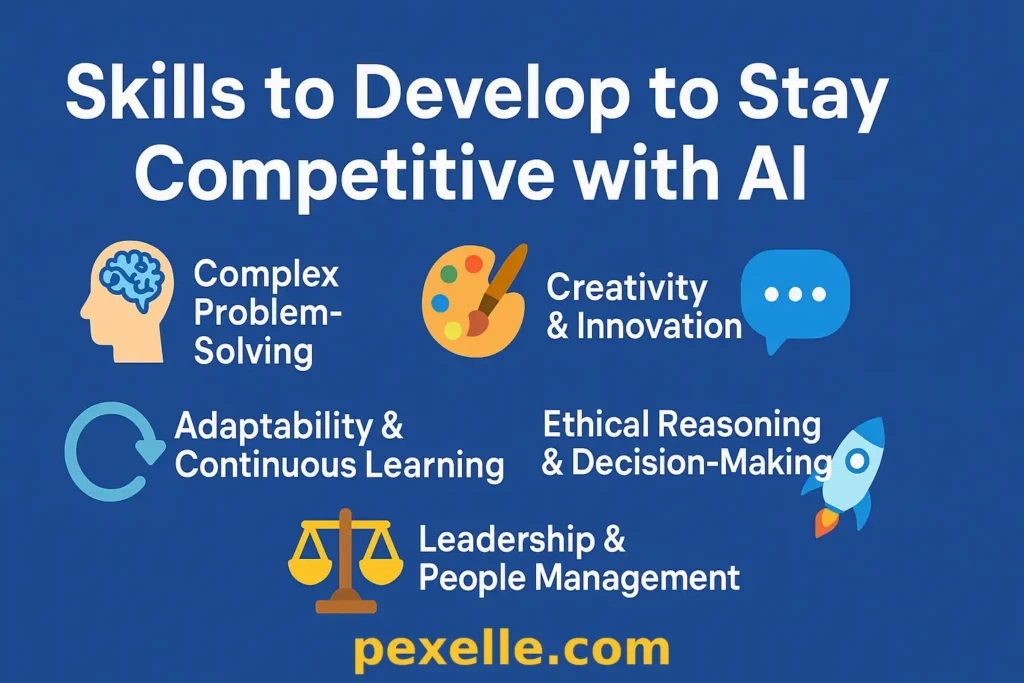Skills to Develop to Stay Competitive with AI

As artificial intelligence (AI) continues to evolve, it is reshaping industries, workflows, and the future of employment. While AI can perform many tasks with incredible speed and precision, there are critical human skills that remain difficult to automate. To thrive in an AI-driven future, individuals must strategically develop competencies that complement AI capabilities rather than compete with them. Below are the most essential skills to focus on:
1. Complex Problem-Solving and Critical Thinking
AI excels at processing data and identifying patterns, but it struggles with nuanced, context-driven problems. The ability to critically analyze situations, ask the right questions, and devise innovative solutions is a uniquely human strength. Individuals who can synthesize information from diverse sources, anticipate challenges, and develop strategic responses will remain indispensable.
2. Creativity and Innovation
Creativity—whether expressed through art, design, product development, or strategic thinking—is one of the hardest traits for AI to replicate authentically. Professionals who can imagine new ideas, create original content, design novel products, or invent groundbreaking technologies will continue to offer irreplaceable value. In an AI-driven world, innovation will not just be a bonus; it will be a survival skill.
3. Emotional Intelligence and Empathy
AI may simulate customer service chats or generate content, but it cannot genuinely understand human emotions or build authentic relationships. Emotional intelligence—self-awareness, empathy, interpersonal skills, and effective communication—will distinguish successful professionals. Leadership, negotiation, team collaboration, and customer relations all heavily rely on emotional intelligence.
4. Adaptability and Continuous Learning
The speed at which technology evolves demands that individuals adopt a growth mindset. Those who are flexible, willing to learn new technologies, and quick to adapt to changing environments will outperform those resistant to change. Lifelong learning through upskilling, reskilling, and embracing interdisciplinary knowledge will be critical for long-term success.
5. Ethical Reasoning and Decision-Making
AI systems raise significant ethical questions around privacy, bias, accountability, and transparency. Professionals who understand ethical frameworks and can apply moral reasoning to real-world dilemmas will be increasingly valuable. Roles involving AI governance, regulation, and ethics are expected to grow, requiring human judgment that cannot be programmed easily.
6. Leadership and People Management
Even as automation reduces the need for certain operational roles, leadership remains a profoundly human function. Inspiring teams, managing diverse groups, navigating organizational dynamics, and driving change are responsibilities that require trust, vision, and human connection—qualities AI cannot replicate.
Conclusion
The future of work will not be about competing with AI but collaborating with it. By cultivating uniquely human skills—complex problem-solving, creativity, emotional intelligence, adaptability, ethics, and leadership—individuals can ensure they remain not only relevant but irreplaceable. Investing in these abilities today is the key to thriving in tomorrow’s AI-enhanced world.
Source : Medium.com




